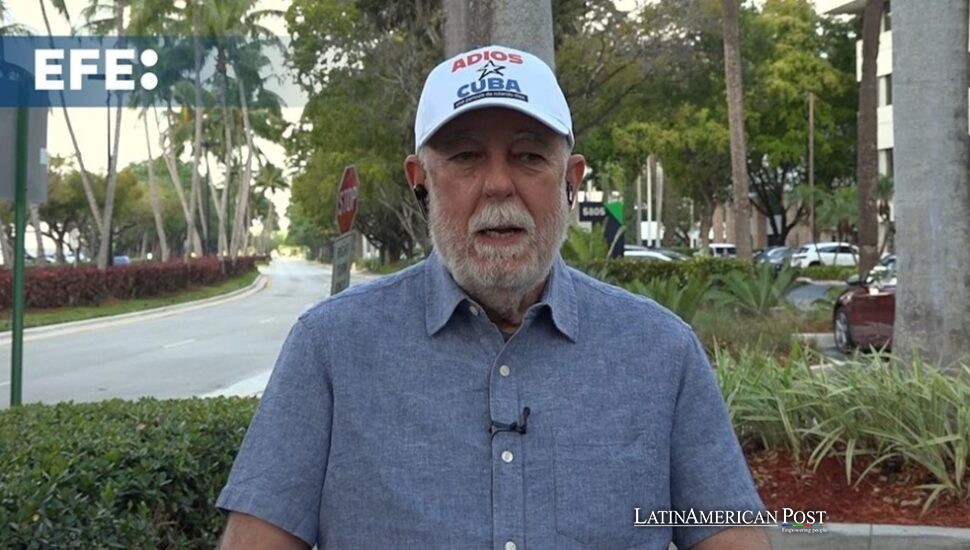Cuba Film Premier: Díaz Unveils Urgent ‘Adiós Cuba’

Rolando Díaz’s latest film, Adiós Cuba, premieres at the Miami Film Festival amid a massive wave of Cuban migration. In an interview with EFE, he reveals the personal urgency and emotional toll behind this cinematic portrait of exodus and belonging.
A New Chapter in Cuban Storytelling
Rolando Díaz, a veteran Cuban filmmaker in his late seventies, confesses he can’t imagine a more fitting occasion for the global debut of Adiós Cuba than the Miami Film Festival. This vibrant coastal city, home to the most prominent Cuban diaspora outside the island, sets the stage for a story that directly confronts the heartbreak of exile. Adiós Cuba will grace the festival on April 9, making it one of the highlights of the event’s 43rd edition.
Speaking to EFE on Friday, Díaz expressed pride and apprehension about unveiling his new work to a local audience that intimately understands its context. “It’s a tremendous honor to show it here among my compatriots,” he said. He hopes to hear their reactions firsthand, conscious that many in Miami have lived, or continue to live, the painful experience of leaving everything behind.
A deep sense of responsibility spurred the director’s decision to tackle another Cuban theme. “Since 2020, more than a million Cubans have left the island,” he observed. “It’s a brutal exodus, and it hasn’t stopped.” In his view, the current migratory crisis—fueled by social unrest, economic struggles, and lingering political challenges—demanded an immediate, heartfelt response.
This is not the first time Díaz has merged artistic expression with social critique. In previous films, such as Los pájaros tirándole a la escopeta (1984) and Melodrama (1995), he balanced biting humor with a measured examination of Cuban society. Yet with Adiós Cuba, he trades satire for raw emotion, reflecting a personal urgency he says he could not ignore. “It created such a strong social impact on me that I had to make a movie about it,” Díaz insisted.
Women at the Core
At the heart of Adiós Cuba stands the character Caridad, a Cuban theater director exiled in Spain who sets out to develop a play based on the actual testimonies of island immigrants. Díaz describes her as both an homage and a mirror.
“I often feature strong female characters in my work,” he explained. “It’s a tribute to my mother and all the women who’ve shaped my life. I know how difficult it is for them to survive in a world mostly run by men.” By foregrounding Caridad’s perspective, Díaz not only salutes the resilience of Cuban women but also recognizes their pivotal role in family and community life, both on and off the island.
He freely admits that Caridad reflects some aspects of his struggles. “She’s an alter ego. She represents an artist’s fight to see a project through, no matter the obstacles. That’s something I’ve faced repeatedly during my years in Spain,” he said.
Born and raised in Cuba, Díaz started his career under the auspices of the Cuban Institute of Cinematographic Art and Industry (ICAIC). Over time, he witnessed political and cultural shifts that shaped life on the island. He left to pursue other European opportunities but never lost sight of his homeland’s ongoing dramas.
The protests of November 27, 2020, in front of the Ministry of Culture, followed by the mass demonstrations on July 11, 2021, and the ensuing exodus, all weighed heavily on his consciousness. “Between 15% and 20% of the population has left in just a few years,” he told EFE, adding that the sheer scale of this departure compelled him to pick up his camera and document a collective trauma.
The Next Act for a Veteran Director
Though Díaz still exudes passion and creative fire, he admits that Adiós Cuba might be his final film. At 77, he is realistic about the challenges of mounting another large production. “This was a tremendous effort,” he said. “And at my age, I don’t know if I want to do it again. The title also resonates with Adiós Cuba and perhaps ‘adiós’ Rolando.”
Still, he is grateful for the collaborative effort that brought the project to life. “We shot about 80% of it in Valencia with a Cuban team,” he noted. “We also filmed in Miami and even in Havana, with the help of friends. That carries enormous emotional weight.”
For Díaz, the film transcends simple nostalgia or political commentary. While it certainly showcases the hardships of Cuban migrants, its director believes audiences from any background can find resonance in the broader theme of exile. “It connects with the pain of exiles everywhere,” he said. “I hope this movie serves as a mirror where many people can see themselves and, perhaps, discover some way to come to terms with their past and present.”
The Miami Film Festival, which opens next Thursday and wraps up on April 12, features a wide range of independent and international films. With 198 movies from 45 countries, including 35 world premieres, the festival continues its tradition of celebrating diverse voices. Adiós Cuba sits comfortably among these selections, poised to engage an audience deeply familiar with the complexities of life between two shores.
Díaz feels the weight of history pressing on this year’s festival. “Miami,” he says, “is the most important city for Cubans outside Cuba.” It’s a statement not just of demographics but also of identity. Many of his fellow citizens have turned the city into a cultural powerhouse that continually redefines what it means to be Cuban in the diaspora.
While Adiós Cuba may serve as Díaz’s swan song, he appears content with his legacy. Over four decades, he has documented Cuba’s evolving reality, chronicling hopes, disappointments, and moments of transcendence. By placing Caridad’s story at the forefront, he ensures that the human dimension of exile remains central rather than drowning in ideological grandstanding.
Also Read: Argentina Applauds Joaquín Sabina as the Legend Bids Farewell.
Ultimately, Díaz’s voice is that of a man who has seen the island from the inside out, who recognizes its flaws yet cherishes its cultural richness. With this project, he aims to distill the searing pain and fragile hopes of a million Cubans who have left since 2020. Above all, he wants viewers—wherever they may call home—to feel a sense of empathy and common cause. He told EFE, “Our stories may differ, but our longing for belonging is universal.”




